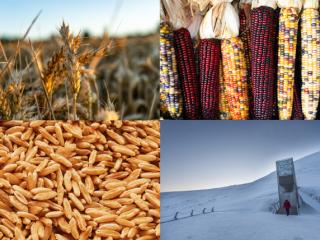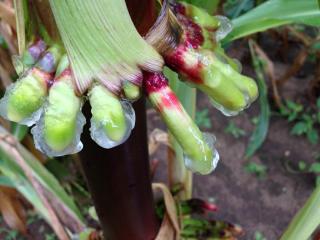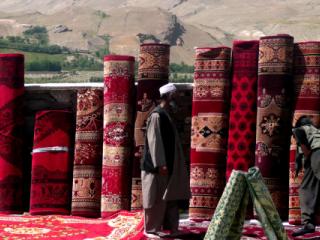In Japan, there is a name for extreme gratitude — Naikan. Gregg Krech is dedicated to the practice, and he thinks holidays should be less about running around making everything perfect and more about inner reflection.More
Interviews By Topic
Brother Peter Reinhart has devoted his entire life to nurturing matters of the soul. His spiritual path has led him to the comforting ritual of baking bread.More
After 30 years of playing it, cellist Clarice Jensen decided she wanted to open up what she could do with her cello. So she started plugging it into guitar pedals.More
When Nikka Costa was ten, she was a pop sensation in Europe. In her 20s, she was Britney Spear’s opening act. But she’s left pop music behind and now she’s performing songs by some of the musicians she’s known, including Prince and Frank Sinatra.More
Most of us get our food from the grocery store, not the fields where it grows. But if you really want to understand where our food comes from — and the potential threats to the food supply — you have to think about seeds.More
There is an unusual, giant corn in southern Mexico that gets its own nitrogen from the air — no manufacturing required.More
Composer, environmental philosopher and guest producer David Rothenberg teaches us how to deeply listen to urban spaces.More
Robert Macfarlane spent a decade exploring caves, mines, catacombs and sewers, on a quest to discover the deep underground. He found a subterranean world of wonder and horror.More
Andreas Weber is a German biologist and philosopher with a highly unconventional way of describing the natural world, one in which "love" is a foundational principle of biology.More
Do you know what an earthquake sounds like? Geophysicist Ben Holtzman collects recordings from around the world — from the Fukushima disaster to the manmade earthquakes caused by fracking. We hear examples of these seismic rumbles.More
One of the greatest walkers of our time, William Helmreich — known for exploring every street in New York City — was an early casualty of COVID-19. But composer David Rothenberg got to walk with him one last time, around wetlands in Queens.More
Humans are not the only creatures who vocalize. Birds, whale and frogs have voices too—but are we listening? Bernie Krause has been recording environmental sounds all over the world since the 1970s. He says it's time for humans to shut up.More
To unpack the history of African musical migration, you have to go back to European colonization, says musicologist Ron Radano. He's been rewriting the history of race and Black music, and he says, "We are all African when we listen."More
Afghan women are complicated. They pray, have affairs, and get mad at their children. But it seems one thing binds them — the landay. Poet and journalist Eliza Griswold went to Afghanistan in 2012 learn more about a type of poem that Afghan women have been sharing since 1700 BCE.More
Anna Badkhen spent a year in the remote Afghan village of Oqa. She got to know the master weavers, who make some of the world's most beautiful carpets.More
In the midst of chaos in her home country, Humaira Ghilzai recently sat down with Charles Monroe-Kane to talk about what might be lost culturally as the Taliban take power.More
In her book, "Against White Feminism," Pakistani Rafia Zakaria argues that white American feminists prolonged the bloodshed during the 20 year war in Afghanistan. She asks if these feminists ever asked Afghan women of the region what they wanted.More
Albert Camus’s first novel, "The Stranger," speaks strongly to the search for meaning. It’s the story of an alienated man who commits a senseless murder. Literary critic Alice Kaplan calls it "the perfect Black Lives Matter book."More


















